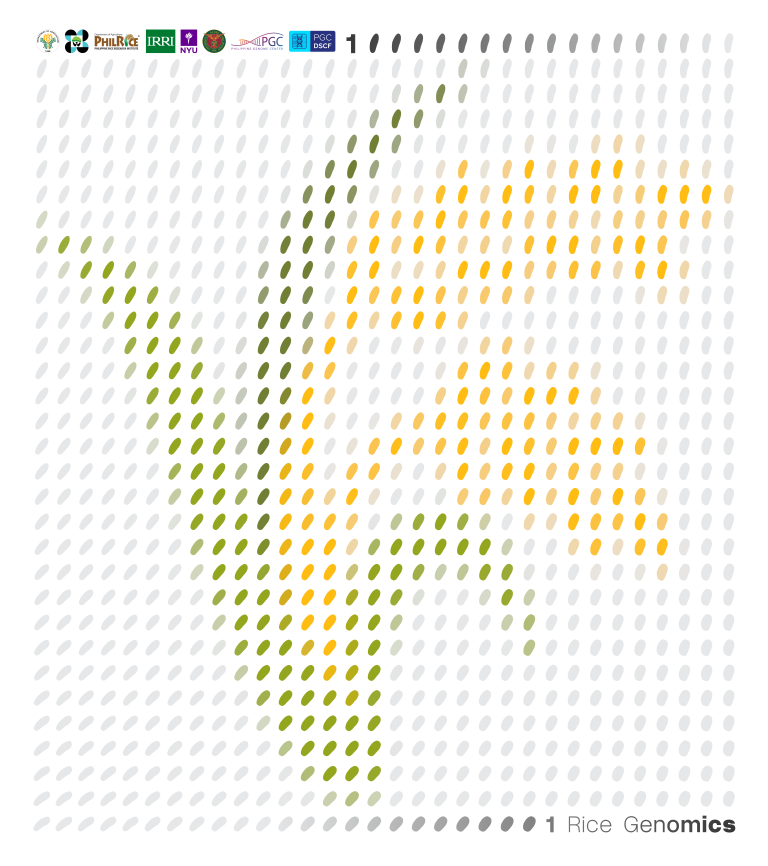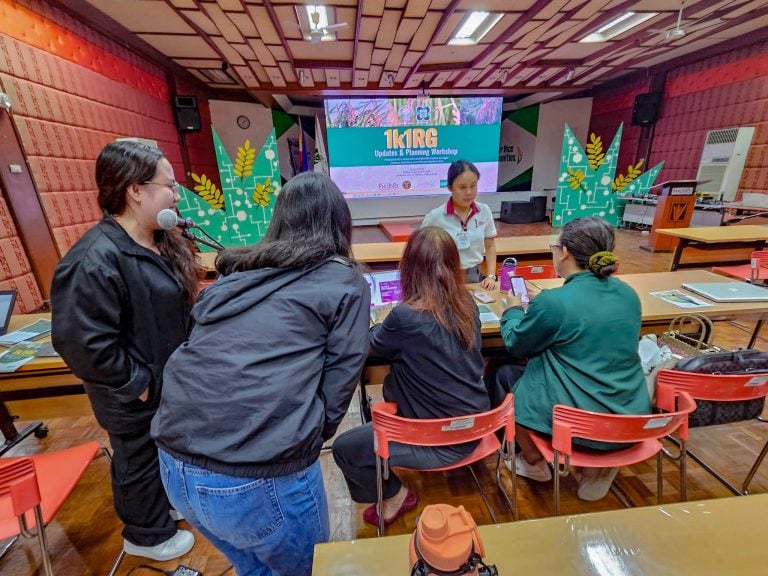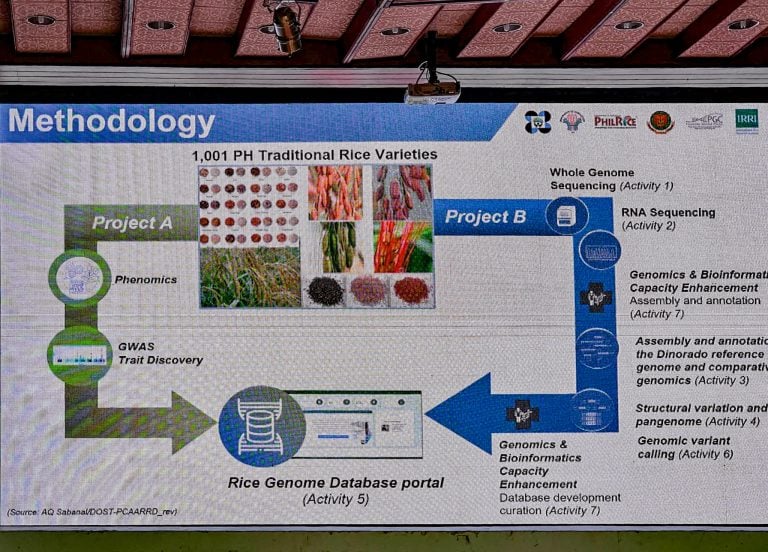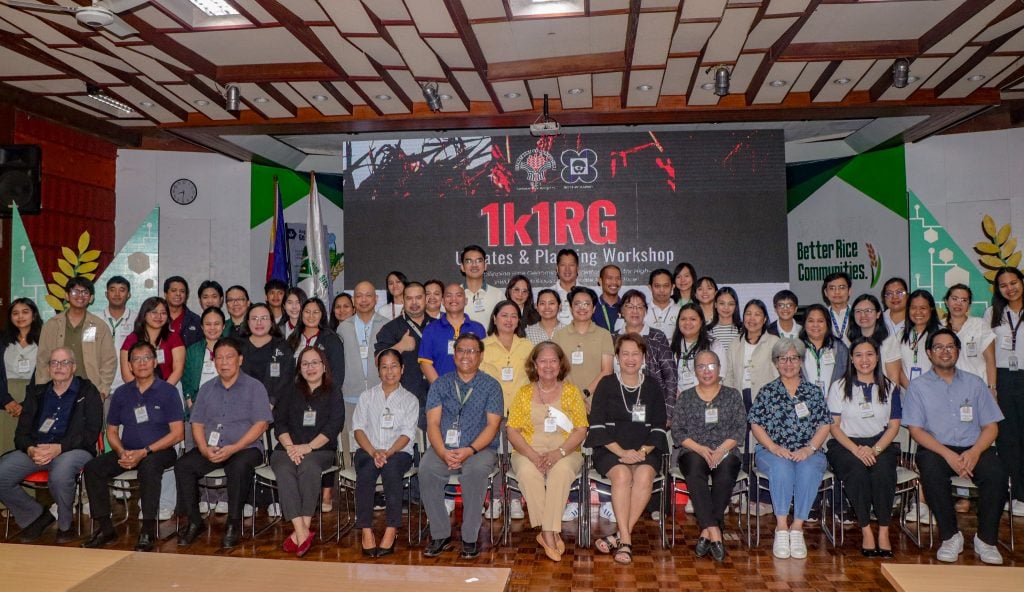A rise for rice research—in a collaboration between higher academic and research institutions in the Philippines and abroad, the 1001 Rice Genome (1k1RG) Program recently held an updates and planning workshop on April 3, 2025, at the DA-PhilRice Central Experiment Station, Science City of Muñoz, Nueva Ecija. The program formally titled “Philippine Rice Genomics and Bioinformatics for High-Yielding, Nutritious, and Climate-Resilient Rice” is funded by both the Department of Agriculture – National Rice Program (DA-NRP) and the Department of Science and Technology – Philippine Council for Agriculture, Aquatic and Natural Resources Research and Development (DOST-PCAARRD). In addition to the support of these agencies, the planning and implementation of the program is an inter-agency effort between the Philippine Rice Research Institute (PhilRice); University of the Philippines System – Philippine Genome Center (UPS-PGC) and its DNA Sequencing Core Facility (DSCF) and Core Facility for Bioinformatics (CFB); UP Diliman – National Institute of Molecular Biology and Biotechnology (UPD – NIMBB); University of the Philippines Los Baños (UPLB) – PGC Agriculture, Institute of Biological Sciences and Institute of Computer Science; International Rice Research Institute (IRRI); and New York University (NYU).



The conducted workshop presented updates and aligned work plans of all component activities of the two key projects that form the 1k1RG Program:
Project A: “Traditional Rice Phenotypes and Trait Genetic Mapping” funded by the DA-NRP and is led by DA-PhilRice—will conduct the assembly and seed production of the 1001 Philippine traditional rice varieties (TRVs). This also includes phenotyping and carrying out the genome-wide association study (GWAS), and population genomics analysis.
Project B: “Mining the Diversity of Philippine Traditional Rice Varieties through Whole Genome Sequencing and Bioinformatics” is funded by the DOST-PCAARRD and led by UPLB-PGC Agriculture. The project will undertake the whole genome sequencing and genomics variant calling of the 1001 Philippine TRVs and perform RNA sequencing, assembly and annotation of the Dinorado reference genome, and comparative genomics; structural variation and pangenome; as well as implement the Philippine Rice Genome Database Portal (PH Rice GDB).
Toward a food and nutrition-secure Philippines, the significance of a stable food supply is further emphasized with the current aggravated climate conditions that greatly affect local rice production. Enter the 1k1RG Program which leverages on the large repository of traditional or heirloom rice varieties available in the country. The program mainly targets to identify the phenotypes and genome sequences of 1000 Philippine TRVs. With the well-known Dinorado variety which will be used as the reference genome—assembled and annotated with data and RNA sequencing that will be acquired from the project. In discovering novel gene sources and genes, this collective research will be able to find key traits to contribute to rice breeding that will produce high-yield, nutritious, and climate-resilient rice.
PhilRice project lead Dr. Loida M. Perez emphasizes that “Many of our traditional varieties are treasured but underutilized due to their production constraints. This effort aims to harness their unique genetic potential for future-ready rice farming”. In the convergence workshop, representatives from the partner institutions were able to present and discuss their methodologies for component activities, mechanisms for monitoring the program, and overall status of the individual projects. In a statement, PGC sequencing lead Dr. Cynthia P. Saloma articulates that “This project to generate a reference sequence of a traditional rice variety from the Philippines will be a boon to local and international researchers who are engaged in rice breeding. The sequencing of a further 1000 Philippine traditional rice varieties collected from the entire archipelago will be an important resource in our search for rice with desirable characteristics unlocking a treasure trove of genetic resources that can address food insecurity, climate challenges, and nutritional deficiencies. We have long dreamed for this project to be done, and we are just so happy that this will finally be implemented.”

The joint initiative stands to deliver a huge amount of data from the genome sequences of the 1001 Philippine TRVs. This will be made available to the public via the PH Rice GDB. From strengthening local expertise in crop genomics and bioinformatics, to providing more research opportunities—the program anticipates its potential in increasing and strengthening research output and capacity. The 1001 Rice Genome (1k1RG) Program is a promise to the future of rice in the Philippines as it ultimately aims to benefit farmers through accelerating the improvement and production of rice varieties.
